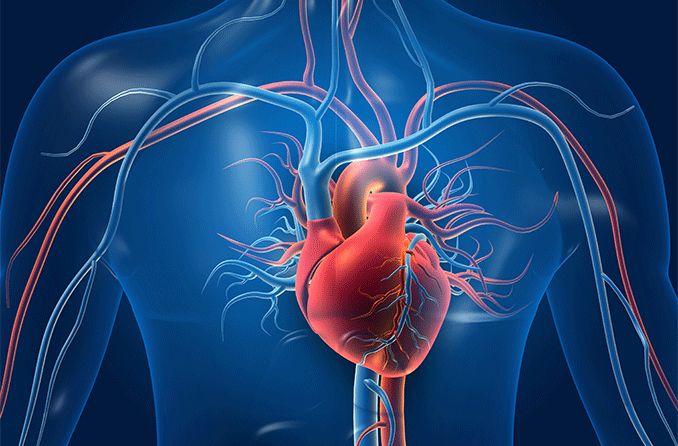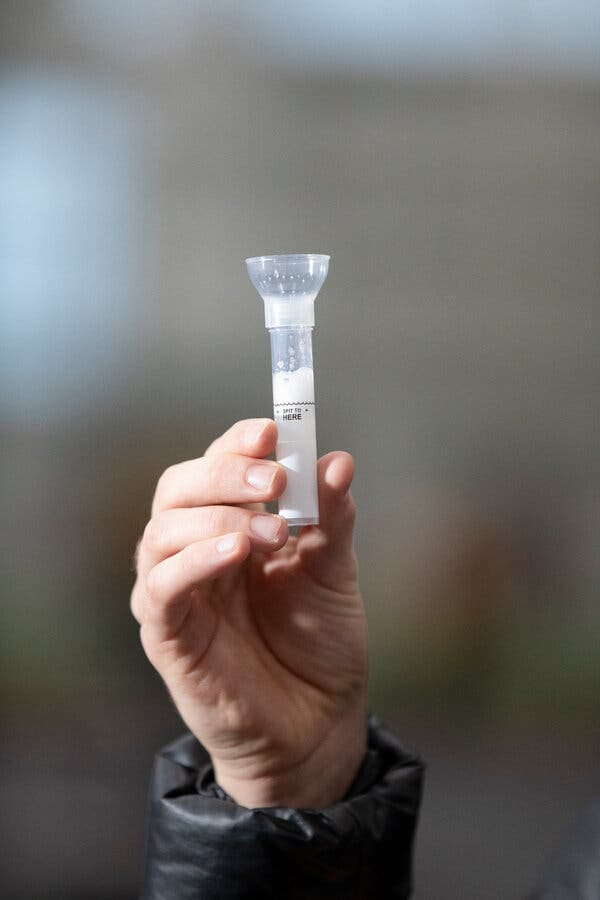Saliva Test that tells about Cardiovascular Disease
According to a study, a quick saliva test may be able to detect the first cardiovascular disease symptoms.
Researchers have discovered a connection between a high white blood cell count in healthy young persons’ saliva and a precursor to cardiovascular disease.

They tested whether white blood cell counts in the saliva of healthy persons could be connected to early indicators of cardiovascular disease using a straightforward mouth rinse. White blood cells are a marker of gum inflammation.
In a study recently published in the journal Frontiers in Oral Health, it was shown that a relationship existed between elevated white blood cell counts and impaired flow-mediated dilation, a sign of artery health that develops early.
“Even in young healthy adults, low levels of oral inflammatory load may have an impact on cardiovascular health — one of the leading causes of death in North America,” said the study’s corresponding author, Trevor King from Mount Royal University in Canada.

Periodontitis, a common gum infection, has previously been connected to the emergence of cardiovascular disease. Inflammatory substances may enter the bloodstream through the gums and harm the vascular system, according to scientists.
Lower levels of oral inflammation may be clinically relevant to cardiovascular health, according to study done on young, healthy individuals without periodontal disease.
The study’s first author, Ker-Yung Hong, a dental student at the University of Western Ontario in Canada, said, “We are starting to see more relationships between oral health and risk of cardiovascular disease.”
“This holistic approach can be put into place earlier if we are seeing that oral health may have an impact on the risk of developing cardiovascular disease even in young healthy individuals,” Hong added.
As important markers of cardiovascular risk, the researchers selected pulse-wave velocity, which can evaluate the stiffness of arteries, and flow-mediated dilatation, which measures how well arteries can widen to allow for higher blood flow.
These directly assess arterial health: stiff and dysfunctional arteries increase the risk of cardiovascular disease in individuals.
The researchers enrolled 28 non-smokers between the ages of 18 and 30, without any comorbidities or drugs that would increase the risk of cardiovascular disease, and without any known history of periodontal disease. Before going to the lab, they were instructed to fast for six hours while only consuming water.

Before washing their mouths with the saline solution that was collected for analysis at the lab, participants rinsed their mouths with water.
After lying down for 10 minutes to complete an electrocardiogram, participants remained still for an additional 10 minutes so that researchers could take their blood pressure, flow-mediated dilatation, and pulse-wave velocity.
According to Michael Glogauer, a co-author of the study from the University of Toronto in Canada, “the mouth rinse test could be used at your annual checkup at the family doctor or the dentist.”
It is simple to use as a gauge for oral inflammation in any clinic, according to Glogauer.
White blood cells and pulse wave velocity did not correlate, indicating there had not yet been any long-term effects on the condition of the arteries.
The researchers made the assumption that oral inflammation seeping into the vascular system affects the arteries’ capacity to produce nitric oxide, which enables them to react to variations in blood flow.
White blood cell counts in the patients were lower than average, which is typically not regarded as clinically important, but higher counts may have a stronger effect on vascular dysfunction.
In light of this research, it is always advised to practice optimal oral hygiene in addition to routine dental checkups. However, this study was only a pilot, King noted.
“We intend to broaden the study’s participant pool and investigate those findings. To further understand the effects of various levels of gingival inflammation on cardiovascular measurements, we also hope to enroll more people with gingivitis and more advanced periodontitis.



